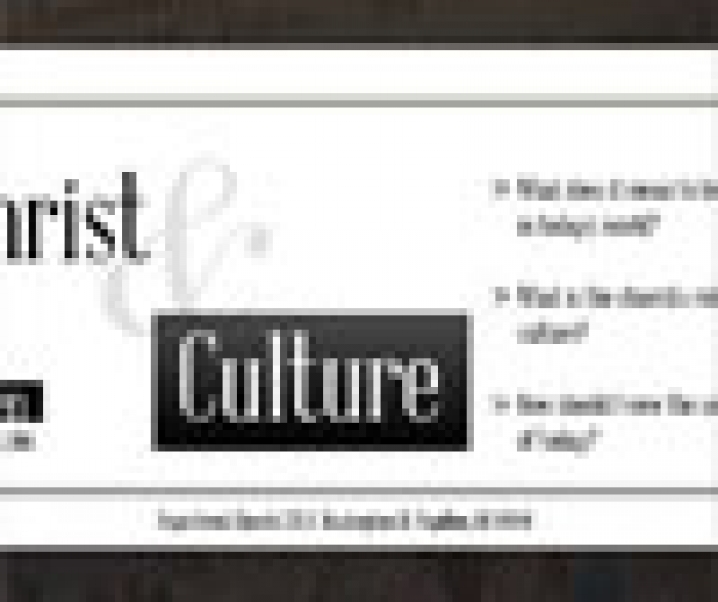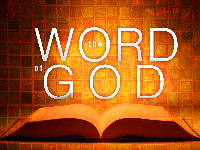We have all heard someone say “I interpret the Bible literally”. What many people mean by this is that they read the Bible . However, reading some text literally, does not mean reading and interpreting it propositionally, but contextually.
Rarely is something as simple as “…well the Bible says it, so I believe it”. But don’t we hear people make statements like this all the time. Don’t we see people justifying their actions by quoting Bible verses and then giving what they say authority by stating that “God said”?
This way of understanding the Bible creates a way of reading whereby we often superimpose our own context upon the text we read. It is not possible to know the truth of God when you are creating your own meaning instead of allowing the text to speak on its own terms.
Why then do we read the Bible differently than we do any other form of literature? I mean none of us would jump into the middle of some book and read a sentence or two and claim to know what the chapter is about.
Many of us read the Bible this way for one of three reasons
1. Unfortunately, some of us don’t know any better. It’s the only way we have been taught. From early on we are taught to memorize verses. As we get older we learn to take those verses in order to build a case for some specific belief that we hold. Oftentimes this means that the more verses we can compile to justify some belief the more compelling the argument becomes for that belief. My question to you is, should we not care more about what the author intended for something to mean instead of the meaning we can manufacture?
2. Because some of us “can’t handle the truth”. We often read the Bible this way in order to justify our beliefs. For whatever reason (probably as a result of number 1) many Christians are in the habit of reading the Bible for doctrine instead of letting the text say whatever it is it needs to say. This allows us to create a comfortable ordered system of theology. We are afraid of not understanding something. We fear the slightest contradiction of “facts” that we have come to accept axiomatically. We fear what we don’t know, but when God is “mystery”, then what we really fear is the truth. Why? Because the truth shines a light on our darkness exposing every corner of our CONTINUED corruption. It illustrates for us just how weak we are. It takes away our excuses!
3. Because we secretly think the Bible is magic. As though the words themselves have some sort of power. Words have no power apart from the ideas they convey. And ideas cannot be interpreted apart from the context in which they were conveyed. The power of scripture occurs when the ideas conveyed therein are lived out in the world (as demonstrated by Christ).
A simple, yet profound example
Although we could dissect all of our doctrines in order to see where we make these mistakes, there is one particular “way of thinking” that illustrates how a correct perspective on a simple concept has a significant impact on one’s worldview.
It’s the idea that we are not to be “worldly”. The idea of being “worldly” has the unfortunate distinction of being a historical axiom of the Church. From the rise of monasticism to the current “anti-culture” attitude of the contemporary church we see how this perspective has directed not only theology but the Church’s historical attitude toward the culture around them.
Yes, it’s almost embarrassing; we have misunderstood a very simple idea in a profoundly unfortunate way.
The assumption we are making about the idea of “being in the world, not of it”, is that “world” is some static unethical entity that is to be avoided. First and foremost, the world is not static. The world of the New Testament is not the same world we live in today. In fact, the world we live in today is quite opposite in the way it used to be. When the Bible makes statements or conveys ideas that Christians are not to be “of the world”, this is in direct reference to the New Testament World, not the modern world.
So what was the New Testament world like (which we are told to avoid)?
The world in which the writers lived was dominated by a strong social inequality. The Greco-Roman world was patriarchal, which treated women like second-class citizens and men like demi-gods.
~Cicero
It was a world dominated by greedy, unethical, and violent political systems which resulted in a class structure that rewarded those who were wealthy/privileged and stymied those who were poor or of a lower status. As a result, slavery was deemed acceptable and human beings not of certain classes were seen as having lesser value (sound familiar?).
I would like us to consider the following question, in our current context, is “the world” more socially responsible than the Church? It’s important for us to consider this question wholly and not just limit it to sex (which the church often does).
I’m not sure we can fully appreciate to what extent this affects what we believe. It radically reforms many core theological beliefs such as: the role of women in Church and society, homosexuality, the gospel, etc.
Some concluding thoughts
Interpreting something literally does not mean we form conclusions based on some abstract proposition – It’s not about just understanding what something says, but in what it means. It’s not about what I think something should mean, but how it demands to be understood. If we really cared about the Bible as much as we claim, then we would demand more of ourselves. We would demand that we have an integrity of equal value to the precious ideas we are trying to understand.
This begins by eliminating our preconceived ideas about what God should be. Our presuppositions only get in the way of encountering God. God is more than the limitations of our own logic. He is beyond the scope of time and space. God’s beauty demands our attention. His holiness commands our respect.
However, none of this matters if one does not care about the truth of God. We need to begin recognizing that our interaction with scripture is one that should be a spiritual exercise soaked in prayer and meditation. We need to stop listening to others tell us what to believe and begin forming our own opinions. Nothing we read in scripture; nothing we hear on Sunday mornings, and nothing we pray about means ANYTHING if we refuse to be honest with ourselves.
Perhaps that the most egregious sin against God is not unbelief, but dishonesty. Our inability to truly turn inward is the very definition of lukewarm Christianity. Until we are able to confront our own inwardness we will always be our own worst enemy – preventing any hope of real transformation.
Until we are able to admit the possibility that we might not be right about something we can never know truth. Why? Because we can never know when we are wrong. Our chief aim should not be in creating a faith of comfortable certainty, but being able to accept the uncertainty that accompanies the vast mystery of our God. Our hope should not be in our ability to compile Bible verses in order to achieve some form of absolute knowledge but to embrace the vast aether of the unknown. That my friends is wisdom.

























gralion torile
November 15, 2023Hey! This post could not be written any better! Reading this post reminds me of my good old room mate! He always kept chatting about this. I will forward this post to him. Fairly certain he will have a good read. Thank you for sharing!
Deshawn Doney
December 3, 2023I’ve been absent for a while, but now I remember why I used to love this website. Thank you, I will try and check back more often. How frequently you update your website?